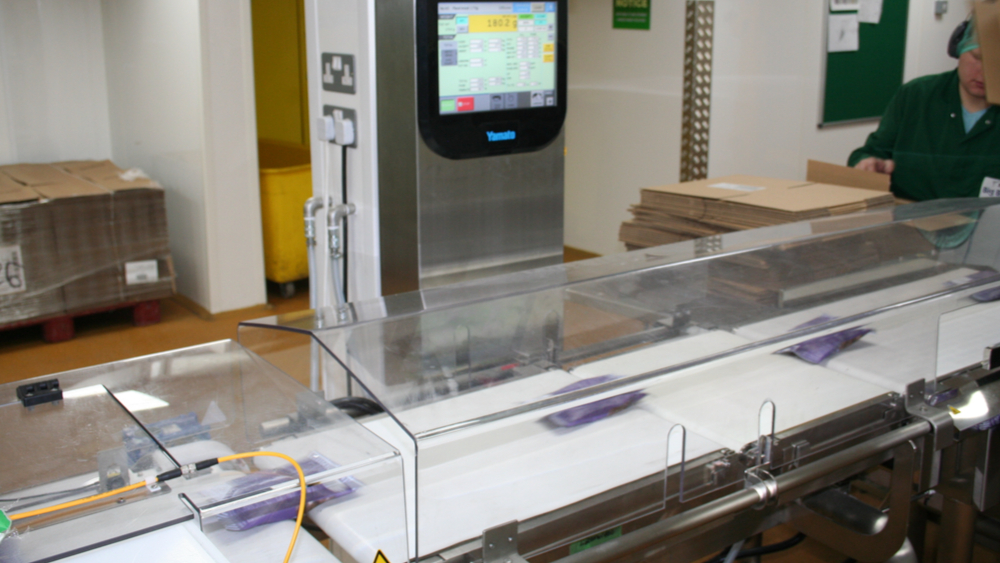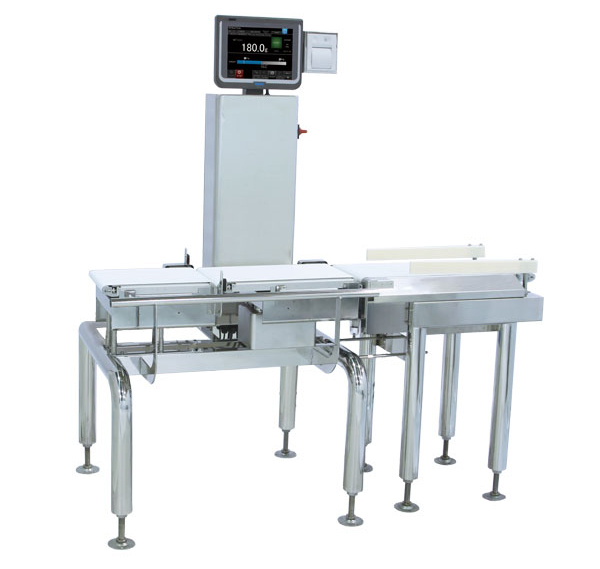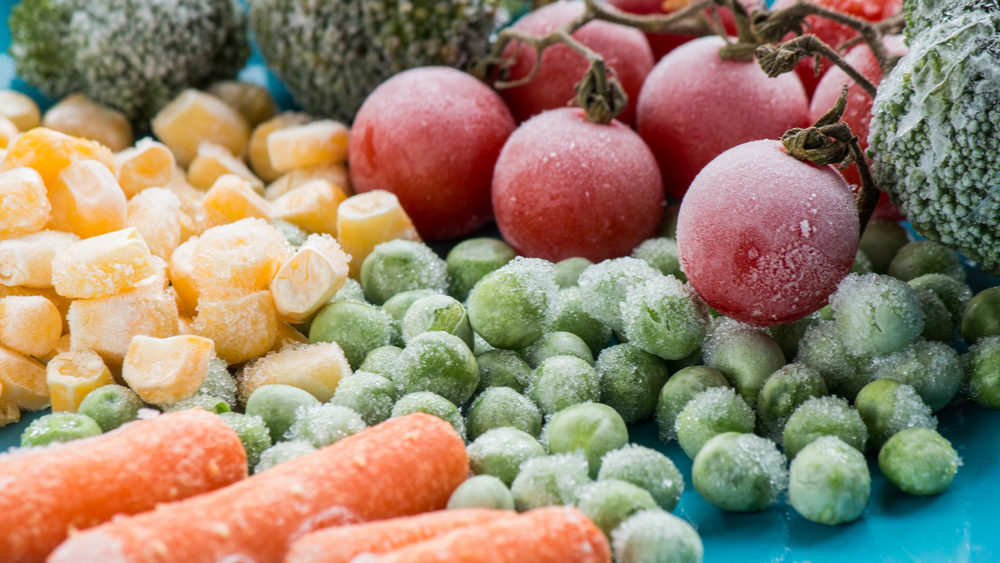What is a checkweigher?
A checkweigher is an important tool to any manufacturer looking to improve results across their lines. It brings together product weighing and inspection into one solution. If you use it correctly, it unleashes many benefits, including better compliance to industry standards, increased productivity, and higher output quality.
If you don’t already utilise checkweighing in your plant, it’s essential to understand how it works and the ways it supports your wider production.

In this guide, we have outlined the role that a checkweigher plays in your production lines and why you should consider installing one.
What is a checkweigher?
A checkweigher works by comparing your product weight against the designated limits you specify, usually determined by your agreed product guidelines. As an example, if your product should weigh at 100 grams, a checkweigher is used to determine if each item falls at the correct weight or deviates from your accepted tolerances.
Checkweighing is especially useful in the food industry when packaging and nutritional requirements rely on your product falling within a specific weight limit.
Most checkweigher will feature a monitor or indicator that shows the weight reading. It will include the following:
- A reject belt that will move under or overweight products away from the rest of your line to prevent below-standard items from being processed
- A weight belt, mounted onto a load cell to weigh your product
- An infeed belt that controls the speed or distance between batches ahead of weighing

Most checkweighers will fit in with existing production lines and conveyor systems, which helps you to implement it into your plant as an automated process.
Checkweighers are used at various stages of the production process. This includes pre-production, ensuring you have the correct amounts of materials for your processes; in-line production to check for consistent weight across batches and identify potential contamination; and final inspection to make sure the finished product fits within your tolerances. It also weighs packs of products, so you place the agreed combined weight on your shipping pallets to meet client requirements.
What products does it work for?
Checkweighers are compatible with a wide variety of products and industry applications, including food and non-food sectors.
Some examples of industries that utilise checkweighing include:
- Healthcare
- Pet food
- Hardware
- Bakery
- Fresh produce
- Granulated
- Frozen food
- Nuts and dried food
- Snacks
Essentially, a checkweigher is used in any line where you want to ensure the weight of the product being processed meets your specified limits.

It is also be helpful for quality control purposes by alerting you when a product is overweight due to an unwelcome contaminant that has found its way into the item. However, if you are using it for inspection purposes, it shouldn’t be the be-all and end-all. Checkweighers only find contaminants that affect weight, so they won’t detect low-density parts. You get combined checkweigher systems that introduce metal detection or x-ray to enhance your quality checks.
There are many checkweigher models available on the market which are tailored to the requirement of your products. As such, it is vital to find a solution that fits the unique needs of your plant. This includes waterproof systems, especially if you are working with fresh or frozen produce.
You may also want to compare features like speed, accuracy, IP rating and ease of hygiene and maintenance to identify the perfect choice for your production lines.
How does it help my line?
There are many advantages to incorporating checkweighing into your production processes. We’ve listed some of the most prominent below.
- Ensure uniformity. By checking the weight of every product you process, you ensure they sit within the designated tolerances of your plant. This promotes consistency across batches, helping to meet customer expectations and manage cost per product.
- Improve quality. A checkweigher allows you to weigh your overall products as well as the ingredients within them. This means that customers consistently get the quality they expect and the value for money they want. By incorporating these checks into your plant, you ensure your output is high-quality, helping to improve your brand reputation and customer satisfaction levels.
- Meet safety and compliance standards. Checkweighing acts as a form of inspection, which enables you to identify potentially harmful contaminants in your products, such as metal or stone. This protects the health of your customers and saves your business from the risk of complaints, product recalls, legal action and reputational damage. It also enables you to meet industry standards which is crucial in the food processing industry.
- Match your packaging and product requirements. As we’ve already mentioned, the weight limits you set for your output is likely aligned with the specifications agreed with your clients and partners and the information shown on your packaging. Utilising a checkweigher enables you to ensure every product meets those agreed limits, which in turn will help you to meet labelling standards, adequately inform consumers and stick to the planned specifications of your product.
- Enhance productivity. By automating your weighing, you allow yourself to systematically check your products to ensure it meets your pre-determined limits without delaying your processing. Many checkweighers will boast advanced speed without compromising accuracy, which speeds up your production timeframes. It also automatically removes issues from your line, so you are left with a high-quality end product only.
- Excellent return on investment. By enhancing your productivity and improving quality, checkweighers provide great ROI. Costs are reduced and results boosted by faster turnaround times, increased customer satisfaction and reduced waste. Checkweighers also tend to be long-lasting, particularly if well-maintained, meaning they effectively serve your production lines for long periods, helping to lower the cost per use.
Conclusion
A checkweigher takes an important place in your production line, allowing you to weigh and inspect items at every stage of the manufacturing process. With its broad capacities and the range of models available, it is a solution for almost every plant, regardless of the industry applications they work with.
If you are looking to install a checkweigher into your factory, Yamato has the ideal option for you. We sell a variety of systems, including waterproof and combined versions, to suit the requirements of your products. Our checkweighers are compatible with existing conveyor systems to help you to implement them easily into your business.
We also work with you to commission your checkweigher, train your staff and maintain it, so it lasts longer. We also offer a 20% discount on our checkweigher belts when you buy three or more, enabling you to keep a healthy stock of spare parts.
Get in touch today to find out more about the role of checkweighing and how Yamato helps you to successfully bring its benefits to your plant.

